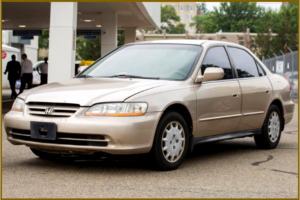
The 70% recall repair rate is very good for older vehicles, but a 50% failure on more than 300,000 early Honda and Acura models is too much to take.
The latest test data on defective Takata air bag inflators show that model-year 2001-2003 Honda and Acura vehicles have a far higher risk of ruptures during air bag deployment. The National Highway Traffic Safety Administration, NHTSA, in an unusual move, is calling on media to help spread the word that un-repaired vehicles are found and fixed before they cause further injuries or fatalities. Last year there were close to 900 recalls affecting 51 million vehicles nationwide, according to the U.S. Department of Transportation’s National Highway Traffic Safety Administration (NHTSA). In addition, NHTSA data shows tahat on average 25% of recalled vehicles are left un-repaired every year.
“With as high as a 50% chance of a dangerous air bag inflator rupture in a crash, these vehicles are unsafe and need to be repaired immediately,” said U.S. Transportation Secretary Anthony Foxx. “Folks should not drive these vehicles unless they are going straight to a dealer to have them repaired immediately, free of charge.”
The higher-risk inflators are in 2001-2003 Honda and Acura vehicles:
- 2001-2002 Honda Civic
- 2001-2002 Honda Accord
- 2002-2003 Acura TL
- 2002 Honda CR-V
- 2002 Honda Odyssey
- 2003 Acura CL
- 2003 Honda Pilot
The vehicles in question were recalled between 2008 and 2011. Honda has reported that more than 70% of this higher-risk population of vehicles has already been repaired, but approximately 313,000 vehicles with this very dangerous defect remain un-repaired. The risk posed by the airbag inflators in these vehicles is grave, and it is critical they be repaired now to avoid more deaths and serious injuries.
The air bag inflators in these particular vehicles contain a manufacturing defect which greatly increases the potential for dangerous rupture when a crash causes the air bag to deploy. “Ruptures are far more likely in inflators in vehicles that have spent significant periods of time in areas of high absolute humidity—particularly Florida, Texas, other parts of the Gulf Coast, and Southern California,” NHTSA said. Testing of the inflators from these vehicles show rupture rates as high as 50% in a laboratory setting.
Drivers of these vehicles should immediately visit SaferCar.gov to check whether their vehicle has any outstanding safety recalls. Those that do should contact their nearest dealer to schedule a no-cost immediate repair. Replacement parts for these vehicles are available immediately.

